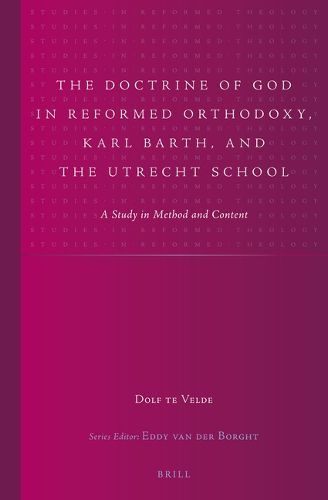Readings Newsletter
Become a Readings Member to make your shopping experience even easier.
Sign in or sign up for free!
You’re not far away from qualifying for FREE standard shipping within Australia
You’ve qualified for FREE standard shipping within Australia
The cart is loading…






In The Doctrine of God Dolf te Velde examines the interaction of method and content in three historically important accounts of the doctrine of God. Does the method of a systematic theology affect the belief content expressed by it? Can substantial insights be detected that have a regulative function for the method of a doctrine of God? This two-way connection of method and content is investigated in three phases of Reformed theology. The first seeks to discover inner dynamics of Reformed scholastic theology. The second part treats Karl Barth’s doctrine of God as a contrast model for scholasticism, understood in the framework of Barth’s theological method. The third part offers a first published comprehensive description and analysis of the so-called Utrecht School. The closing chapter draws some lines for developing a Reformed doctrine of God in the 21st century.
$9.00 standard shipping within Australia
FREE standard shipping within Australia for orders over $100.00
Express & International shipping calculated at checkout
In The Doctrine of God Dolf te Velde examines the interaction of method and content in three historically important accounts of the doctrine of God. Does the method of a systematic theology affect the belief content expressed by it? Can substantial insights be detected that have a regulative function for the method of a doctrine of God? This two-way connection of method and content is investigated in three phases of Reformed theology. The first seeks to discover inner dynamics of Reformed scholastic theology. The second part treats Karl Barth’s doctrine of God as a contrast model for scholasticism, understood in the framework of Barth’s theological method. The third part offers a first published comprehensive description and analysis of the so-called Utrecht School. The closing chapter draws some lines for developing a Reformed doctrine of God in the 21st century.